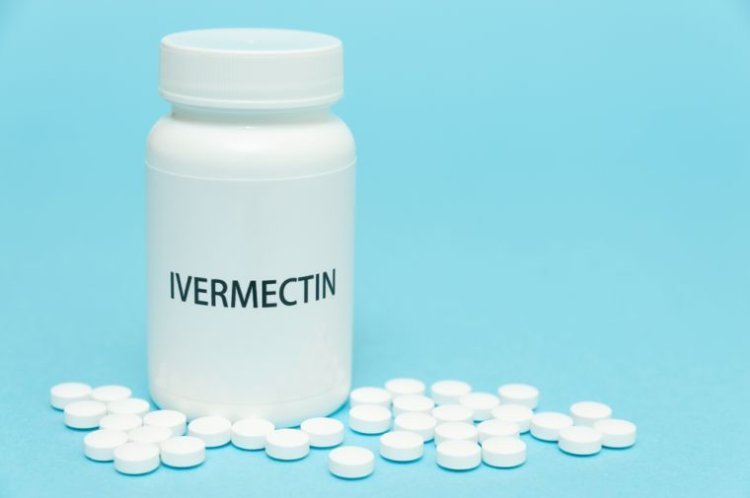Is ivermectin good for fatty liver?

Fatty liver disease, a common condition characterized by the buildup of fat in liver cells, has become increasingly prevalent due to poor dietary habits, obesity, and sedentary lifestyles. Meanwhile, ivermectin Iverheal 12mg, a well-known antiparasitic drug, has garnered attention for its potential benefits beyond parasitic treatment. This raises an interesting question: is ivermectin good for fatty liver? While ivermectin is primarily used to treat infections caused by parasites, emerging research suggests it may have properties that influence liver health. Let’s explore the science behind this connection and whether ivermectin Iverheal 6mg can be beneficial for those with fatty liver.
Understanding Fatty Liver Disease
Fatty liver disease occurs when excessive fat accumulates in the liver, impairing its ability to function properly. It is categorized into two types:
- Non-Alcoholic Fatty Liver Disease (NAFLD): This type is not related to alcohol consumption and is often linked to obesity, type 2 diabetes, and metabolic syndrome.
- Alcoholic Fatty Liver Disease (AFLD): This occurs due to excessive alcohol consumption and can progress to more severe liver conditions, such as cirrhosis.
If left untreated, fatty liver disease can progress to inflammation (steatohepatitis), fibrosis, and even liver failure. Lifestyle changes such as diet, exercise, and weight loss are the mainstays of treatment, but researchers are also investigating new therapeutic options—including the potential role of ivermectin.
What Is Ivermectin?
Ivermectin is an FDA-approved medication commonly used to treat parasitic infections such as onchocerciasis (river blindness), strongyloidiasis, and scabies. It works by targeting and paralyzing parasites, ultimately killing them. In recent years, ivermectin has been studied for other potential benefits, including antiviral and anti-inflammatory properties, making it a topic of interest for conditions like fatty liver disease.
Ivermectin’s Potential Impact on Fatty Liver
Anti-Inflammatory Properties
One of the most intriguing aspects of ivermectin is its potential to reduce inflammation, a key factor in the progression of fatty liver disease. Chronic inflammation in the liver can lead to oxidative stress, damaging liver cells and exacerbating fat buildup. Research suggests that ivermectin may have anti-inflammatory effects, which could theoretically help reduce liver inflammation and protect against further damage.
Metabolic Regulation
Fatty liver disease is closely tied to metabolic dysfunction, including insulin resistance and abnormal lipid metabolism. Some animal studies have indicated that ivermectin may influence metabolic pathways and improve insulin sensitivity. By addressing metabolic issues, ivermectin could potentially help mitigate the progression of NAFLD.
Antioxidant Effects
Ivermectin has shown antioxidant properties in some studies, which could be beneficial for liver health. Antioxidants help neutralize free radicals, reducing oxidative stress—a major contributor to liver cell damage in fatty liver disease.
What Does the Research Say?
While the potential benefits of ivermectin for fatty liver are promising, it’s important to note that most studies have been conducted on animals or in laboratory settings. For instance:
- Animal Studies: Research on mice has shown that ivermectin can reduce liver inflammation and fat accumulation. In one study, ivermectin appeared to improve liver enzymes and decrease markers of liver damage in mice with induced fatty liver.
- In Vitro Studies: Laboratory studies have demonstrated that ivermectin may modulate inflammatory pathways and reduce oxidative stress in liver cells.
However, clinical trials on humans are limited, and more robust evidence is needed before ivermectin can be recommended as a treatment for fatty liver disease. It’s also worth noting that the dosage and long-term effects of ivermectin in the context of liver health are not well understood.
Is Ivermectin Safe for People with Fatty Liver?
Ivermectin is generally considered safe when used as prescribed for parasitic infections. However, it is metabolized in the liver, which means people with existing liver conditions, including fatty liver disease, should use it cautiously. Misuse or overuse of ivermectin, particularly in higher doses, can lead to liver toxicity and worsen liver health.
If you have fatty liver disease and are considering ivermectin for any reason, it’s crucial to consult a healthcare provider first. They can evaluate your liver function and determine whether ivermectin is safe for you.
How to Support Fatty Liver Health Naturally
While ivermectin’s role in fatty liver management is still under investigation, there are proven ways to support liver health and reduce fat accumulation:
- Adopt a Healthy Diet: Focus on a balanced diet rich in fruits, vegetables, whole grains, and lean proteins. Avoid sugary foods, processed snacks, and alcohol.
- Exercise Regularly: Physical activity can help reduce fat in the liver and improve overall metabolic health. Aim for at least 150 minutes of moderate exercise per week.
- Lose Excess Weight: Gradual weight loss can significantly improve liver function and reduce fat buildup.
- Control Blood Sugar and Cholesterol: Managing conditions like diabetes and high cholesterol is essential for preventing liver damage.
Should You Consider Ivermectin for Fatty Liver?
While ivermectin shows potential for improving liver health through its anti-inflammatory and antioxidant properties, it is not currently approved as a treatment for fatty liver disease. The existing evidence is preliminary, and more human studies are needed to confirm its safety and efficacy. For now, the best approach to managing fatty liver involves lifestyle changes, such as a healthy diet and regular exercise, combined with medical treatment as needed.
Conclusion
So, is ivermectin good for fatty liver? At this stage, it’s too early to say definitively. While some studies suggest it may have anti-inflammatory and metabolic benefits that could help with fatty liver disease, more research is needed to validate these findings in humans. If you’re dealing with fatty liver, focus on proven strategies like a balanced diet, exercise, and weight management. Always consult a healthcare provider before considering new treatments, including ivermectin, especially if you have underlying liver conditions. With the right approach, it’s possible to improve liver health and prevent complications naturally.
What's Your Reaction?














